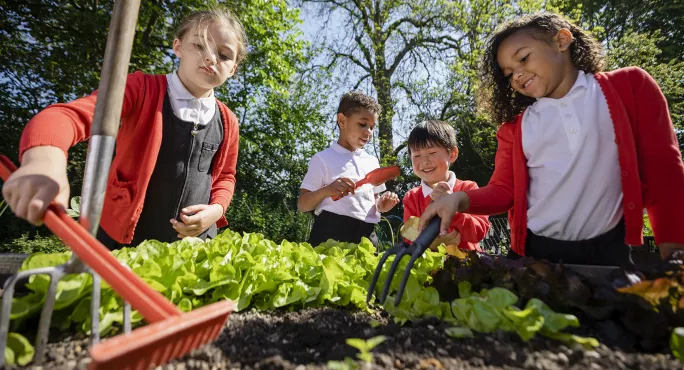- Home
- Teaching & Learning
- General
- How outdoor learning can reshape Scottish education
How outdoor learning can reshape Scottish education

Outdoor learning can transform the educational landscape in Scotland. As we move towards a more sustainable and equitable future, the importance of outdoor learning will continue to grow, enriching the lives of students and communities alike.
Our connection to nature, or lack of it, is a key issue in so many of the problems that humankind is facing. Solutions for climate crisis, inequality, even coming to terms with the colonial injustices in our collective history, may be found if we make the way we learn more creative and connect to our environment.
Scotland’s ‘strong commitment to the natural world’
In Scotland, there is already a strong commitment to the natural world, and we were the first country to adopt the United Nations global goals for the environment. Outdoor learning is a cornerstone of Scotland’s Learning for Sustainability Action Plan, which underscores the importance of embedding sustainability into all aspects of education, from curriculum design to pedagogical approaches.
To rise to the challenge and bring this plan to life, we need to create room for nature by making learning outdoors a much more significant part of practice within our schools, universities and colleges.
The General Teaching Council for Scotland specifies that registered teachers need to demonstrate a depth of knowledge and understanding of outdoor learning. Meanwhile, the Outdoor Learning Hub at Queen Margaret University (QMU) - launched earlier this year and supported by Architecture & Design Scotland - has been designed to assist teachers in gaining that knowledge.
- Related: The case for outdoor schools becoming ‘pivotal’ to Scottish education
- Talking point: Should all pupils be entitled to a week-long residential?
- Headteacher view: Outdoor learning has improved our pupils’ attainment
A series of outdoor learning courses tailored for teachers and community educators take a deep dive into all aspects of outdoor education, sharing the necessary skills to enable participants to foster a meaningful outdoor learning environment, ensuring they are well prepared to integrate nature-based learning into their curricula. This includes a new micro-credential (short) course supported by Inspiring Scotland and the Community Learning and Development Standards Council Scotland.
Through the hub, educators can access a range of digital resources, including a virtual discovery trail, which complement the hands-on experiences in nature. This ensures that students can engage with the environment in diverse and meaningful ways, regardless of their physical location.
Outdoor learning brings communities together
One of the most compelling aspects of outdoor learning is its ability to bring communities together, and the Outdoor Learning Hub is a shining example of the importance of partnership. It takes a village to raise a child, and collaborating with educational institutions, community groups and environmental organisations has been key to the hub’s rich tapestry of resources and opportunities, for both educators and students.
We need a qualifications system to support learning for sustainability. We need to make space in the primary curriculum to learn outdoors. We need to create reasons in our secondary schools to connect people to their environment. We need colleges and universities to develop courses that support sustainability and connection to nature. We need to make learning outdoors a core aspect in all educational settings to ensure that everyone can learn and be in the natural world.
This year we have been engaging in a curriculum review with Education Scotland. It is my deep hope that we embed nature-based thinking into our nation’s aspirations for the future - and place creative outdoor learning more centrally within curriculum and learning.
Patrick Boxall is a lecturer in initial teacher education at Queen Margaret University, in Edinburgh
For the latest Scottish education news, analysis and features delivered directly to your inbox, sign up to Tes magazine’s The Week in Scotland newsletter
You need a Tes subscription to read this article
Subscribe now to read this article and get other subscriber-only content:
- Unlimited access to all Tes magazine content
- Exclusive subscriber-only stories
- Award-winning email newsletters
Already a subscriber? Log in
You need a subscription to read this article
Subscribe now to read this article and get other subscriber-only content, including:
- Unlimited access to all Tes magazine content
- Exclusive subscriber-only stories
- Award-winning email newsletters
topics in this article



